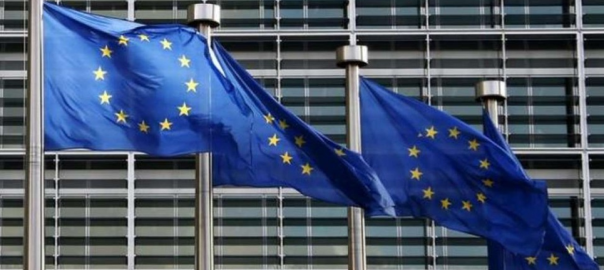The EU has once again targeted what it sees as unfair export restrictions on Chinese minerals, with a further 11 materials included in a new case which has been raised with the World Trade Organisation (WTO).
Included in the list are battery raw materials, graphite and cobalt, as well another 5 minerals for which the country operates quotas on the volumes made available for export.
The case, which will run concurrently with a similar action filed by the US, forms part of an ongoing challenge to China’s raw material trade policies.
China asserts that the various quotas and tariffs applied to the 11 minerals in question are targeted at protecting domestic resources and the environment.
Countries elsewhere, which have grown accustomed to relying on cheap Chinese exports of these raw materials over recent decades, insist that these policies are in contravention of WTO rules and are restricting the competitiveness of their domestic industries.
The case follows two similar legal actions in 2012 and 2014 in which the EU argued that unfair trading practices were impacting the region’s customers and producers.
Following a lack of action after previous rulings, EU trade commissioner Cecilia Malmström has called for a coordinated approach between US and EU.
“We cannot sit on our hands seeing our producers and consumers being hit by unfair trading practices. The past two WTO rulings on Chinese export restrictions have been crystal clear” she stated.
Formal settlement proceedings between the EU and China are set to take place over the coming 60 days. Thereafter, the EU may choose to further the action if a resolution is not agreed.
A case for criticality
The efforts to address China’s export policies highlight ongoing and quickly mounting concerns over the country’s raw material supply.
Economic development since the mid-1990s has seen a shift in the country’s emphasis towards cultivation of domestic downstream sectors.
Nowhere is this more prevalent than in the battery sector, where China is leading the capacity expansions which are expected to bring about a new era in transportation and energy storage.
As a result, growing volumes of battery raw material will be consumed domestically over the coming years – posing potential supply chain issues for consumers elsewhere.
China controls 100% of supply of natural spherical graphite, the predominant anode raw material for lithium-ion batteries.
What’s more, for battery raw materials which it doesn’t have significant domestic resources, it has built up significant stockpiles or conversion capacities, while acquiring stakes in raw material producers elsewhere.
EU cobalt supply chain
This concerted effort has seen the country accumulate cobalt stockpiles believed to be in excess of 20,000 tonnes.
In May, state-backed miner China Molybdenum also agreed to acquire the Freeport-McMoran Tenke Fungurume copper/cobalt mine in the DRC, tying up further raw material supplies.
This alongside the significant investment directed into installing lithium conversion capacities well above market size, gives China dominance in three of the most strategic battery raw materials – graphite, lithium and cobalt.
It is this supply chain dominance which the EU and US are attempting to challenge.
Read more at the original source: http://benchmarkminerals.com/Blog/eu-to-tackle-china-on-critical-mineral-trade/


